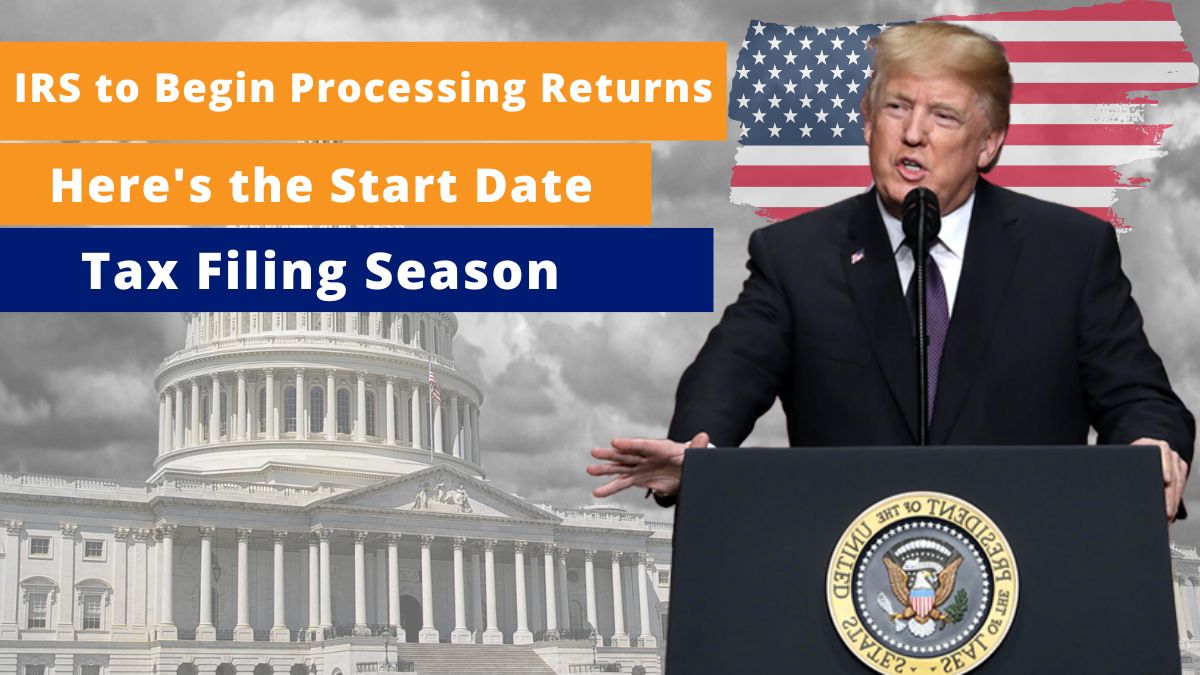Latest News
IRS to Begin Processing Returns: Here’s the Start Date for Tax Filing Season

Benjamin Franklin once remarked, “Nothing is certain except death and taxes.” While the timing of the former remains unpredictable, the annual arrival of tax season is as reliable as the calendar itself. For taxpayers in the United States, the 2025 tax filing season is just around the corner.
Some individuals have already submitted their tax returns to the Internal Revenue Service (IRS), while others may be delaying the inevitable. Regardless of where you stand, staying informed about important deadlines, extension options, and refund processing timelines is critical. Below, you’ll find everything you need to know about this year’s tax season.
When Does the 2025 Tax Season Begin?
The 2025 tax season officially kicks off on Monday, January 27. However, this does not mean you need to wait until then to get started.
Taxpayers can begin preparing and filing their returns early to ensure their forms are among the first to be processed once the IRS opens for submissions. Early filing can also help you get ahead of potential delays and secure your tax refund sooner.
What Is the 2025 Tax Filing Deadline?
This year, the tax filing deadline falls on its traditional date: Tuesday, April 15, 2025.
Tax Day always lands on April 15, unless the date coincides with a weekend or federal holiday. Make sure to mark this date on your calendar to avoid penalties and late fees.
How to File for a Tax Extension
If you’re unable to complete your tax return by April 15, you can request an extension. Here are the key details:
- The extension request deadline is also April 15.
- Taxpayers granted an extension will have until October 15, 2025, to file their returns without incurring penalties.
- Natural disaster victims automatically receive extensions and are not required to file additional forms to qualify.
You can file for an extension electronically or with a paper Form 4868 through the IRS at no cost. The process requires basic details such as your name, address, Social Security number, and payment if you owe taxes. However, keep in mind that an extension only applies to filing your return—it does not extend the deadline for paying any taxes owed, which are still due by April 15.
What Are the Penalties for Missing the Tax Deadline?
Failing to meet the tax filing deadline can result in significant penalties:
- A 5% monthly penalty is applied to any unpaid taxes for every month the return is late, up to a maximum of 25% of the total owed.
- If you file but fail to pay taxes owed, or if you request an extension but don’t make payments, a smaller 0.5% monthly penalty will apply.
To avoid penalties, make an effort to file your return or request an extension before the April 15 deadline.
How Quickly Are Refunds Processed?
Most taxpayers can expect to receive their tax refunds within 21 calendar days of filing, provided they e-file and choose direct deposit. For those filing paper returns, refunds may take longer—up to four weeks or more.
To track your refund, the Where’s My Refund? tool is your best resource. This service updates daily and provides status updates 24 hours after e-filing. For paper returns, refund status is typically available after four weeks.
| Method of Filing | Expected Refund Timeline |
|---|---|
| E-file with direct deposit | Within 21 days |
| Paper return | Four weeks or more |
Tax Filing Statistics for 2024
In the 2024 tax season, the IRS reported receiving over 163 million tax returns, representing a 0.9% increase from the previous year. For the 2025 tax season, the IRS anticipates that more than 140 million individual tax returns will be submitted ahead of the April 15 deadline.
Navigating tax season doesn’t have to be stressful if you’re prepared. Knowing the start date, understanding how to file for an extension, and staying aware of potential penalties can save you time, money, and headaches.
Filing early not only ensures your return is processed quickly but also helps you secure your tax refund sooner. Stay organized and informed, and the 2025 tax season can be a seamless experience.
FAQs
Can I file my taxes before January 27, 2025?
Yes, taxpayers can prepare and submit their returns early. However, the IRS will begin accepting and processing returns starting January 27.
What happens if I don’t pay my taxes by April 15, even with an extension?
If you fail to pay taxes owed by April 15, you’ll face penalties, including a 0.5% monthly fee on the unpaid balance.
How can I check the status of my refund?
Use the IRS’s Where’s My Refund? tool, available online. E-filers can track their refunds within 24 hours, while paper filers may need to wait four weeks for updates.
-

 Government Aid1 week ago
Government Aid1 week agoFebruary SSDI Payments: Only This Group Will Receive the First Checks of Next Month
-

 Finance2 days ago
Finance2 days agoRare Bicentennial Quarter Worth $15 Million
-

 Finance5 days ago
Finance5 days agoThe Lincoln Wheat Penny Worth $5 Million- Still Circulating Today
-

 Finance2 days ago
Finance2 days agoRare Coins: The 1964 D Lincoln Penny Errors You Should Know About
-

 Government Aid2 days ago
Government Aid2 days agoSocial Security Announces 2025 Check Increase, But a 23% Reduction is Expected Soon
-

 Finance2 days ago
Finance2 days ago1970-D Kennedy Half Dollar- A Rare Coin Worth Over $150,000 Still in Circulation!
-

 Government Aid5 days ago
Government Aid5 days agoThe Complete February SSDI Payment Schedule: Discover When You’ll Receive Your Disability Benefits
-

 Government Aid1 week ago
Government Aid1 week agoConfirmed: What You Need to Know to Collect $1,900 in Social Security by January 31
















1 Comment